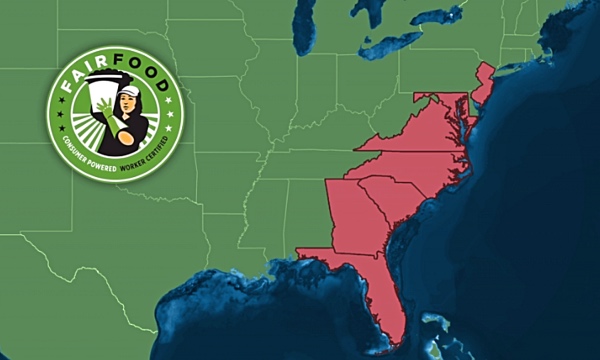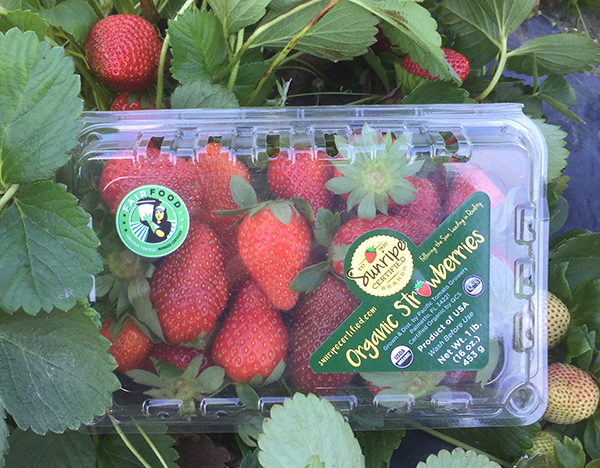CNN Freedom Project: “There are roughly 30,000 people currently working on Fair Food Program farms and receiving all the protections and benefits outlined in the agreements. But, there’s still a long way to go to bringing the rest of the country onboard.”
Today we bring you the third and final installment of the extraordinary CNN report on the Fair Food Program, “How America’s ‘ground-zero’ for modern slavery was cleaned up by workers’ group.” This third video focuses on the history of the CIW’s anti-slavery efforts, and on the development and expansion of the Fair Food Program as the principal means for eliminating forced labor on participating farms. It is the perfect complement to the first two installments, which focused on the CIW’s Campaign for Fair Food and the daily, concrete changes in workers’ lives on the ground on Fair Food Program farms, respectively.
The third video also ends with a look to the future of the Fair Food Program, which the CNN report calls “the most comprehensive social responsibility program in U.S. agriculture.” Judge Laura Safer Espinoza, the Executive Director of the Fair Food Standards Council which monitors and enforces the FFP code of conduct, addresses the remarkable labor reforms that have taken place under the FFP’s protections, but laments the fact that the FFP’s complaint line continues to receive calls from workers reporting harrowing human rights violations on the vast number of farms that remain outside of the Program.

The Fair Food Program has expanded rapidly over the course of its first six seasons, building from two farms at its launch in late 2010 to encompass virtually the entire Florida tomato industry by the end of the 2011 season, then expanding out of Florida to operate in six additional East Coast states over the past several seasons. And in the process the Program has expanded from tomatoes into strawberries and peppers, as well.

But, despite all the historic advances made possible by the FFP, there remains, in the words of the CNN Freedom Project correspondent, “still a long way to go to bringing the rest of the country onboard.”
And that is why it is so important that the vast and growing Fair Food Nation — on campuses, in congregations and in communities across the country — keep the pressure on Wendy’s, Publix, Kroger, and all the other brands that have yet to join the Fair Food Program. The FFP’s protections are proven, and they are universally recognized as the most effective social responsibility program in the country today. There is no longer any excuse for a responsible food retailer to refuse to join the Fair Food Program, because to do so is to tacitly admit that your company is content with less than the best when it comes to human rights. And there is no longer any reason why farmworkers — who have faced harsh, humiliating conditions for decades — should have to continue to suffer unimaginable abuse when a proven solution now exists.
The CNN Freedom Project is the latest objective observer to take a close look at the Fair Food Program, to study its unique mix of worker participation and enforcement mechanisms, and declare it best in class when it comes to protecting human rights in corporate supply chains. The White House, the United Nations, the Department of Justice, the Department of Labor, the Equal Employment Opportunity Commission, and a growing number of academics and human rights experts all have recognized the FFP’s unparalleled success in eliminating longstanding abuses in the agricultural industry. How much longer will Wendy’s, Publix, Kroger and others continue to turn a blind eye to human rights violations in their supply chains while an effective program that can resolve and prevent those abuses is staring them squarely in the face?
You can see the CNN report in its entirety here.
